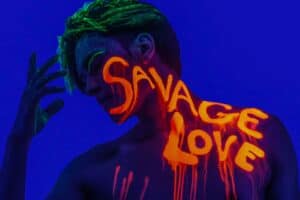NFTs are bringing ownership and property rights to digital goods and changing the way content is created.

Understanding the crypto space and the world of non-fungible tokens (NFTs) can be daunting for the average person.
However, given half the chance, you will find that is it not only an interesting and wondrous concept but it is also rapidly advancing and providing opportunities for a range of creators and investors along the way.
The Citizen sat down with Chris Becker, blockchain technologies lead at Investec, to find out more about the vast topic of NFTs and how artists, art collectors and investors can get involved.
One thing that stands out about Becker is how he lights up when speaking about the topic and as simple as such a thing sounds, it is not often that one meets someone who gets so passionate about such convoluted topics.
What are NFTs?
This video is no longer available.
Simply put, they’re a unique digital asset, according to Becker. The not so simple answer? Well, given enough time, Becker could probably conceptualise an entire tertiary programme on the topic.
“They’re different from cryptocurrencies in that cryptocurrencies are tokens that are fungible,” begins Becker before laying out their difference from NFTs.
He finds the development in the NFT space interesting because it is bringing ownership and property rights to digital goods which is why it is such a big innovation.
“What digital assets do you own? Do you own the photos that are in cloud servers or in folders on your computer? Is there a market where you can sell these images or trade them and generate revenue off of them?”
“There’s a lot of excitement about what this can do for the way digital content is created, how property rights are associated to that and how that is distributed to consumers at the end of the day.”
Digital content creation and the future of NFTs
Given the decentralised and digital nature of these digital assets, the world of NFTs is developing at neck-breaking speed. This can prove to be worrying for most stakeholders in the space.
Becker, however, is excited about the possibilities that this holds.
“NFTs is a broad category of assets, you need to know what is it that’s interesting to you in this new type of digital asset class.”
View this post on Instagram
Focusing on one particular concept, Becker explained etherium name services and how these assets could serve companies in the future.
“[Just] like you can register investec.com, you can register investec.eth and investec.eth is a non-fungible token.
“But, what that domain name does for you is in the same way that investec.com will redirect somebody on the internet using different internet protocols on the world wide web to servers that pull information out of servers to load up Investec’s website, if you use investec.eth for example, you could theoretically, in future, redirect to a smart contract or a set of smart contracts that Investec controls and those would have different types of functionalities.”
Becker then rattled off a list of things such as digital marketplaces, digital goods, crypto assets, securities tokens and central bank digital currencies that count among these functionalities.
“If you’re an investor and you understand the value of this type of domain name and what it can do for you in future, you’re going to be interested in perhaps investing and securing these domains.”
“On the other hand, if you’re interested in the arts side of things, you need to understand what the cutting edge or the frontier in innovation in digital art is.”
For example, if people are creating algorithms that are generating random art where there are certain characteristics that are consistent in a series of artworks but there are marginal changes between the different pieces, you – as an investor – might find an artist like that interesting.
This is because it is somebody that is creating in that manner for the first time in history and if you own one of those pieces, in fifty or a hundred years time, it might be very valuable.
NFTs could also expand into the world of virtual reality, which Bekker referred to as “the meta-verse” and expanded upon how NFTs are being used to port concepts of real-world scarcity (such as real estate) into the digital world.

NFTs and government regulation
“There’s certainly a lot of regulatory focus on cryptocurrencies and there’s a lot of energy and effort going into understanding this new asset class and coming up with regulations that are appropriate to this new early stage that it is in,” said Becker.
This is because regulators have to balance protecting the public with allowing the landscape to develop and grow without much hindrance.
“I think the big area of focus at this stage, I’d say, for South African regulators is ‘what do all of these assets, assets that are essentially on the internet, mean for exchange control?’
“For example… If you own a bitcoin, it’s an asset in South Africa but it is also an asset on the internet that is everywhere the internet is. So do you treat this as an off-shore asset or an on-shore asset?”
“If a South African artist living in Joburg creates a piece of art, tokenises that on ethereum and sells that title to the artwork, the direction that exchange control regulations are moving in would essentially classify that now as an offshore asset but if the physical asset is hanging here on the wall, is it an offshore asset?
“We don’t think so. So there’s a lot of questions like this that still need to be figured out.”
Support Local Journalism
Add The Citizen as a Preferred Source on Google and follow us on Google News to see more of our trusted reporting in Google News and Top Stories.






